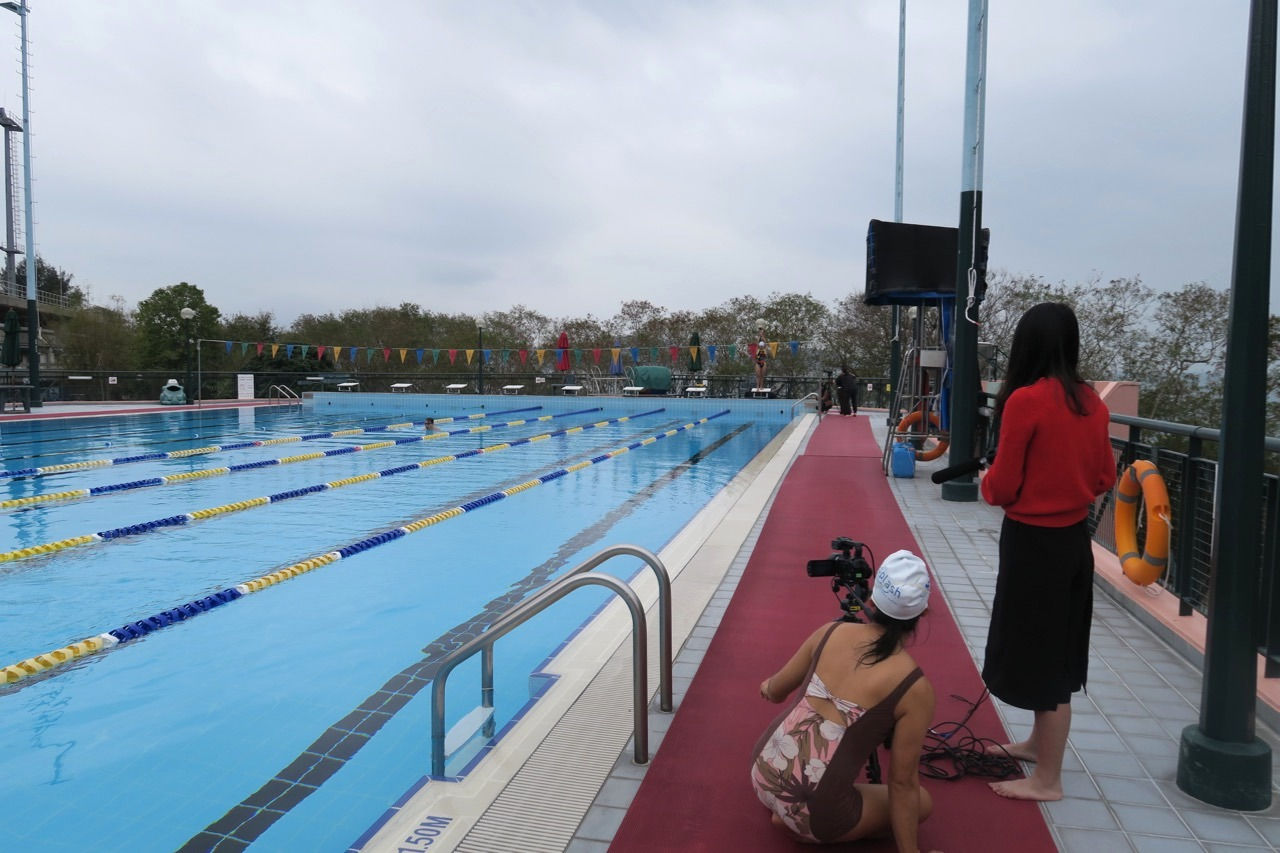
VISUALIZING THE VOICES OF MIGRANT WOMEN WORKERS

2017-2018
This project was a collaboration between Dr. Vivian Wenli Lin, Co-Founder of Voices of Women Media, and Dr. Julie Ham, Assistant Professor, Department of Sociology, University of Hong Kong, and was supported by the HKU Knowledge Exchange Fund granted by the University Grants Committee.
EXHIBITION
THE UNIVERSITY OF HONG KONG
11 FEBRUARY - 5 MARCH 2017
This exhibition featured stories of journeys, work abroad and letters home as visualized by migrant women including migrant sex workers, domestic workers, marriage migrants, refugees and asylum seekers, women who have been trafficked, and informal workers. These participatory media projects with women in The Netherlands, India, Nepal, Taiwan, Indonesia and Hong Kong were based on Dr. Vivian Wenli Lin's research with Voices of Women (VOW) Media titled 'Visualizing Our Voices: Self-made Audiovisual Media by Women from Social, Economic and Cultural Margins in the Era of Global Migration'. The exhibition was launched with a panel discussion with Lin Chew (Executive Director, Institute of Women's Empowerment), Pooja Pant (Co-Director, Voices of Women Media - Nepal), Eni Lestari (Chairperson, International Migrants Alliance), Freya Chou (Curator of Education and Public Programmes, Para Site), and Dr. Ju-chen Chen (Department of Anthropology, Chinese University of Hong Kong).

PARTICIPATORY
VIDEO
WORKSHOPS
VARIOUS LOCATIONS IN HONG KONG
12 FEBRUARY - 2 APRIL 2017
Approximately 50 participants from domestic worker, asylum seeker, and ethnic minority communities in Hong Kong learned how to script, direct, shoot and produce short videos over eight workshops. In total, 43 short videos were produced by participants.
CREATED BY PARTICIPANT SUSAN R. LORIA (SUE)
FROM THE DOMESTIC WORKER EMPOWERMENT PROJECT
DIRECTORS' CUT
This selection of videos offer a thoughtful glimpse into the lives and aspirations of domestic workers, asylum-seekers, refugees, migrants and ethnic minorities. Many of the videos shared encounters and experiences with the city. Some videos produced by participants offered a glimpse of domestic workers' days off, while many shared the everyday realities of domestic work. Participants' videos provided new ways to think about what we see or don't see - in Hong Kong and in each other.













VIDEO SCREENING
AND AWARD CEREMONY
THE UNIVERSITY OF HONG KONG
23 APRIL 2017
All participants were awarded a certificate of participation. Judges Dr. Ju-chen Chen (Department of Anthropology, Chinese University of Hong Kong), Freya Chou (Para Site) and Robert Godden (Rights Exposure Project, Hong Kong) selected and presented awards for some of the outstanding videos. Participants also prepared a fashion show, showcasing their cultural costumes, and singing performances.
SELF-CARE
WORKSHOPS
THE UNIVERSITY OF HONG KONG
FEBRUARY - APRIL 2017

A series of self-care workshops on happiness, well-being and mindfulness was provided by Lin Chew, Executive Director of Institute of Women Empowerment.
PUBLIC SCREENINGS
AND EXHIBITIONS
Para Site
Screening
Para Site
Screening
A public screening of participants' videos and Q&A with directors was held on the 6 August 2017 at Para Site in Quarry Bay.
Belles Artes Project, Manila Philippines
Belles Artes Project, Manila Philippines
Participants' videos were screened on September 2, 2017 at Belles Artes Projects in Manila, followed by a talk with Dr. Jean Encinas-Franco from the Department of Political Science, University of the Philippines.
Unveiling the Veil: Muslim Women in Hong Kong Art Exhibition
Selected videos by Muslim participants were included in this exhibition at the University of Hong Kong and the Chinese University of Hong Kong from March 25 - May 3, 2018.
Unveiling the Veil: Muslim Women in Hong Kong Art Exhibition
Beyond Myself,
The Hive Spring
Beyond Myself,
The Hive Spring
'Beyond Myself' exhibition was held at the Hive Spring from April 26 - May 14, 2018. Some of the videos created by participants were featured in the exhibition, along with artwork from Filipino migrants in London and Hong Kong.
PUBLICATIONS
Lin, V.W., Ham, J., Gu, G., Sunuwar, M., Luo, C. & Gil-Besada, L. (2019). Reflections through the lens: Participatory video with migrant domestic workers, asylum seekers and ethnic minorities. Emotion, Space and Society, 33. https://doi.org/10.1016/j.emospa.2019.100622.
MEDIA
HONG KONG
FREE PRESS
25 FEBRUARY 2018
RTHK
THE WORKS
Migrant Women Workers, Wilson Shieh X Sun Yat Sen Museum & Singer Songwriter Najwa Mahiaddin [video]
15 FEBRUARY 2017
THE DREAM
TEAM



Our team included our dynamic interns - Chunya Luo (Haru), Guolin Gu, Laura Gil Besada, and Merina Sunuwar - and our brilliant installation artist Liv Tsim.














